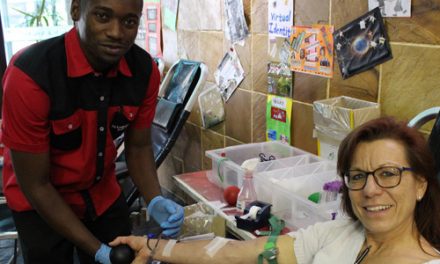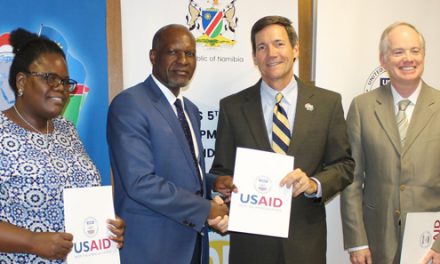
Elephant skin disease suspected in Ohangwena
The Ministry of Agriculture Water and Forestry (MAWF) has reported cases of Bovine Besnoitiosis (elephant skin disease) in the Ohangwena region.
A number of suspected cases have been reported from Oshikango, Ondobe and Okongo by the Eehana state veterinary office despite the disease being eradicated in 1986.
Bovine Besnoitiosis is a protozoal disease of cattle caused by the parasite Besnoitia besnoiti. The severity of the disease may vary from mild to severe cases and even death of seriously affected cattle. Many infected cattle remain sub-clinically infected and the only sign of the disease is the presence of parasitic cysts in the membranes of the eyes.
“Infections are characterized by high temperatures and non-specific signs, such as depression, swelling of superficial lymph nodes and loss of weight. Swelling in the joints may cause pain during movement and may lead to permanent hind leg lameness. A progressive thickening, folding or wrinkling of the skin and hair loss are the typical features of the disease. Male animals develop swelling around the testicles and may become sterile”, said Acting MAWF Permanent Secretary Abraham Nehemia.
Nehemia indicated that in line with the provision of the Animal Health Act, the Directorate of Veterinary Services have come up with control measures to contain the disease.
A controlled movement of cattle with a red cross permit in the Ohangwena region will be allowed after the cattle have been inspected by a veterinary official and do not show clinical symptoms of the disease.
The ministry will also initiate the immediate commencement of besnoitiosis surveillance activities in the Northern Communal Areas. This will include monitoring cattle movement at road checkpoints, putting up temporary fences in and around Ohangwena, and impounding infected animals. If required, some animals may be eliminated.
As a further precautionary measure, Nehemia said all famers must ensure that all cattle are clearly identified using registered stock brands and official ear tags. “Despite the challenge of a porous border, we urge all farmers and the community at large to refrain from moving animals without approval of the Directorate of Veterinary Services” he emphasized.
Farmers are further requested to herd their cattle for the duration of this intervention and to immediately report infected or suspicious animals to the nearest State Veterinary Office.











































